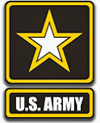|
 During the Civil War,
Will Getty enlisted at Monroe, Michigan,
in the 1st. Michigan Cavalry as a trooper
and a veterinarian. The first enlistment was
for three months as it was thought that the
rebellion could be defeated in that time. During the Civil War,
Will Getty enlisted at Monroe, Michigan,
in the 1st. Michigan Cavalry as a trooper
and a veterinarian. The first enlistment was
for three months as it was thought that the
rebellion could be defeated in that time.
The 1st. Michigan Cavalry was organized by
George Custer. This unit moved into Ohio to
come under the command of General Phil
Sheridan. Sheridan used the 1st. Michigan to
form two units: the 1st. and 3rd. Michigan
Cavalry. William found himself in the 3rd.
Michigan which was ordered to Washington,
D.C., where it was immediately used to
confront the confederate forces in the first
battle of Bull Run.
This ended in a rout of
the Union Army and loss of all records,
supplies and equipment. In the process, Will
was wounded and was sent back to Tecumseh to
recover. He had joined the cavalry because
of his love of horses and of his knowledge
as a veterinarian. The terrific slaughter of
horses in battle turned him against the
cavalry, so he reenlisted in the
6th. Michigan Infantry and was allowed time
for his three months enlistment plus his
recovery time. This unit, under Gen. Buell,
served in the campaigns of Memphis,
Chattanooga, Murfreesboro, Chicamauga and
south.
At the end of the 6th
Michigan Infantry's term of service the
veterans petitioned to reactivate it. The
petition was granted but was reinstated as
the 6th. Michigan Heavy Artillery and was
assigned to Major General E. R. S. Canby in
the Mississippi River Campaign.
The last battle of any
magnitude fought in the war was at Mobile,
Alabama, where the 6th. Michigan was used to
reduce Fort Morgan on Mobile Point and Fort
Gaines which defended the entrance to Mobile
Bay. The 6th Michigan Heavy Artillery
mustered out on August 20, 1865, in New
Orleans.
William was the great grand-uncle of
Mildred (Roggerman) Heiden.
|

